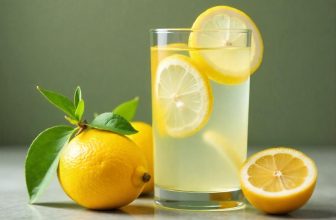
Welcome! Today, we’re diving deep into gut health and how you can improve it naturally. The gut, often called our ‘second brain,’ plays a crucial role in digestion, immune function, and even mental health. So, let’s explore the natural foods that are scientifically proven to promote a healthy gut and how the vitamins, minerals, and fibers they contain benefit your body.
Your gut isn’t just about digestion—it’s a central hub for overall health. Inside the gut, trillions of bacteria, both good and bad, make up your gut microbiome. These microorganisms help with nutrient absorption, immune system regulation, and even the production of neurotransmitters like serotonin, which affects mood and mental health.
An imbalance in gut bacteria, known as dysbiosis, can lead to various issues like bloating, digestive discomfort, and even chronic conditions like irritable bowel syndrome (IBS). That’s why maintaining a balanced gut microbiome is essential for overall well-being. And one of the best ways to achieve that is through the foods you eat.
Benefits of Fiber for Gut Health:
Let’s start with fiber, the unsung hero of gut health. Fiber-rich foods like fruits, vegetables, whole grains, and legumes are essential for feeding the good bacteria in your gut, helping them to thrive and multiply.
There are two types of fiber—soluble and insoluble. Soluble fiber dissolves in water to form a gel-like substance in the gut, which helps slow digestion and promotes the growth of beneficial bacteria. Insoluble fiber adds bulk to your stool, making it easier to pass and preventing constipation.
Foods high in soluble fiber include oats, apples, beans, and carrots, while insoluble fiber is found in whole grains, nuts, and vegetables like broccoli and spinach. Studies show that a diet rich in fiber is linked to lower risks of digestive issues and inflammation.
Probiotics for Gut Health:
Do you know that our body needs a certain type of bacteria for maintaining healthy gut? let’s talk about probiotics, probiotics are live beneficial bacteria found in fermented foods. Probiotics help maintain the balance of good bacteria in the gut and prevent the growth of harmful bacteria.
Some of the best sources of probiotics are fermented foods like yogurt, kefir, sauerkraut, kimchi, and miso. These foods are rich in strains like Lactobacillus and Bifidobacterium, which have been shown to improve digestion, reduce inflammation, and even boost immunity.
For example, studies suggest that yogurt with live cultures can help improve symptoms of lactose intolerance and IBS. Kefir, another probiotic-rich food, is a fermented milk drink that has been shown to enhance digestion and reduce inflammation in the gut.
Prebiotics for Healthy Gut:
While probiotics introduce new bacteria into your gut, prebiotics help feed the good bacteria that are already there. Prebiotics are types of fiber that the body can’t digest, so they pass through the digestive system to feed beneficial gut bacteria.
Best Prebiotic Food for Healthy Gut:
Some of the best prebiotic foods include garlic, onions, bananas, asparagus, and chicory root. For instance, garlic contains inulin, a prebiotic fiber that has been shown to boost beneficial gut bacteria and improve digestion.
Bananas are another fantastic prebiotic food, containing resistant starch that feeds gut bacteria and promotes the production of short-chain fatty acids, which are crucial for gut health. Eating a combination of prebiotic and probiotic foods can create a symbiotic effect that supports overall gut health.
Minerals and Vitamins for Healthy Gut
Now, let me tell you about the essential vitamins and minerals that support a healthy gut. Vitamin D, for example, plays a significant role in regulating gut bacteria and boosting immunity. You can get Vitamin D from sunlight, fatty fish, and fortified foods.
Vitamin A is another important nutrient that helps maintain the integrity of the gut lining, reducing the risk of leaky gut syndrome. Sources of Vitamin A include sweet potatoes, carrots, and dark leafy greens.
Magnesium helps regulate digestion by relaxing muscles in the digestive tract, while zinc is vital for maintaining gut barrier function. Both magnesium and zinc are found in foods like nuts, seeds, and legumes.
Staying hydrated is another crucial factor for gut health. Water helps break down food and ensures that nutrients are properly absorbed in the digestive system. It also helps keep stool soft, preventing constipation.
Herbal teas like peppermint and ginger can also soothe the digestive tract and improve digestion. Incorporating hydrating foods like cucumbers, melons, and oranges can support proper hydration and digestion.
Exercise to keep your Gut Healthy:
In addition to diet, lifestyle habits like reducing stress, getting enough sleep, and regular exercise play an important role in gut health. Chronic stress can negatively impact your gut bacteria, leading to imbalances. Practicing mindfulness and relaxation techniques, such as meditation and yoga, can help reduce stress and improve gut health.
Exercise, even in moderate amounts, helps stimulate the gut and keep digestion regular. And of course, getting 7-9 hours of sleep each night is essential for maintaining a healthy gut-brain connection.
So there you have it, natural ways to improve gut health through a combination of fiber-rich foods, fermented foods, prebiotics, and essential vitamins and minerals. Small changes to your diet and lifestyle can make a big difference in your overall gut health.
If you found this article helpful, don’t forget to like, and share it with someone who might benefit from these tips.





